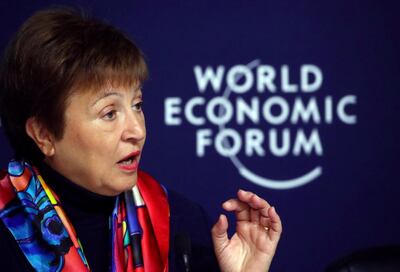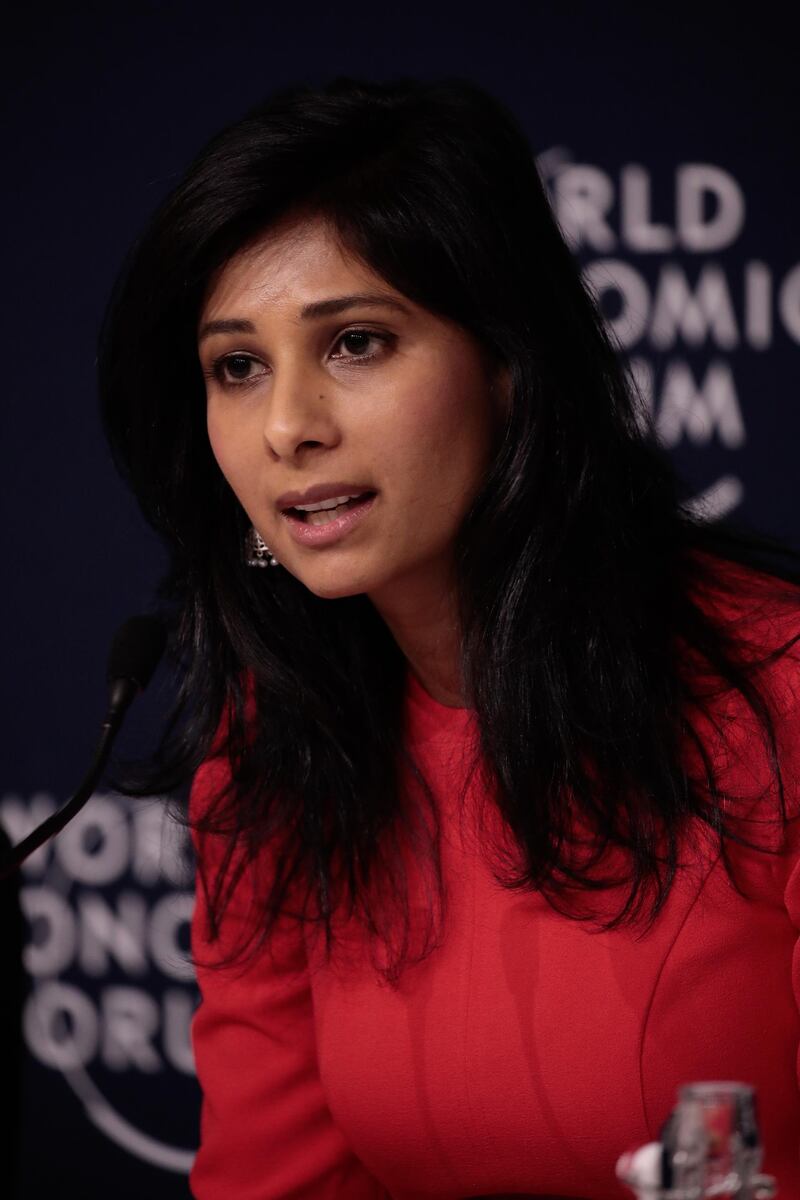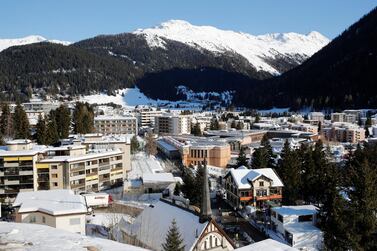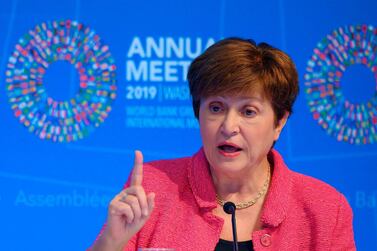The International Monetary Fund revised its estimate on the global economy, its sixth downward estimate in over a year, even as trade war tensions between the US and China eased this month and called on countries to cooperate to boost growth.
The Washington-lender projects global growth to increase modestly by 3.3 per cent in 2020 and 3.4 per cent in 2021, a downward revision of 0.1 per cent and 0.2 per cent respectively, due to lower output from other emerging market countries and a slowdown in India, which was once one of the fastest growing economies globally.
"The projected recovery for global growth remains uncertain," the fund's chief economist Gita Gopinath said at the annual World Economic Forum meeting in Davos, Switzerland. "It continues to rely on recoveries in stressed and underperforming emerging market economies, as growth in advanced economies stabilises at close to current levels."
In October when the IMF said the global economy was in a “synchronised slowdown”, it estimated trade tensions would reduce global growth in 2020 by 0.8 per cent, or $700 billion (Dh2.56 trillion). A third of that is due to tariffs, with the majority of the impact coming from a slowdown in business investment, which means the US-China phase one agreement reduces but does not eliminate the cloud of uncertainty over the global economy.
“Overall, the risks to the global economy remain on the downside, despite positive news on trade and diminishing concerns of a no-deal Brexit,” said Ms Gopinath. “New trade tensions could emerge between the US and the EU, and US-China trade tensions could return. Such events alongside rising geopolitical risks and intensifying social unrest could reverse easy financing conditions, expose financial vulnerabilities, and severely disrupt growth.”
If the US-China phase one agreement reached this month is durable, then the negative impact on global gross domestic product in 2020 will decrease to 0.5 per cent, Ms Gopinath said. A slowdown in manufacturing, which the IMF cited in October as a contributing factor to the decline in growth, appears to be bottoming out as the automotive sector rebounded and the services sector continues to expand, Ms Gopinath said. The automotive industry had registered a decline in purchases globally, because of tapering demand in China and rising compliance with emission standards.
China, the world’s second largest economy, is forecast to expand 6 per cent this year, a 0.2 percentage point upward revision that takes into account the recent agreement with the US, but 0.1 per cent less than last year. The US economy, the world’s largest, will decelerate to 2 per cent this year from 2.3 per cent in 2019, and slide to 1.7 per cent in 2021.

The UK, which is set to leave the EU at the end of January, will see its economy grow 1.4 per cent, 0.1 per cent more than 2019. EU economies are forecast to grow an aggregate 1.3 per cent this year with Spain advancing the most, followed by France and Germany. Debt-burdened Italy, whose debt to GDP ratio is about 138 per cent, will continue to trail the EU bloc and grow 0.5 per cent this year from 0.2 per cent last year.
Emerging market and developing economies are projected to grow 4.4 per cent this year and 4.6 per cent in 2021 from 3.7 per cent in 2019, a downward revision of 0.2 per cent for all years. The adjustment largely reflects the sharpest slowdown of India’s economy since 2009, which faces a credit crisis and a soaring level of bad loans. Asia’s third-largest economy is forecast to grow 5.8 per cent this year.
The economies of the Middle East and Central Asia will grow 2.8 per cent in 2020. The forecast is a 0.1 percentage point lower than previously projected. The downward growth revision of the region is largely because of the impact of US sanctions on Iran’s economy, which has crimped output.
Saudi Arabia’s economy, the Arab world’s largest, is projected to grow 1.9 per cent in 2020 and 2.2 per cent the year after, following an expansion of 0.2 per cent last year.
In a clear jab at nationalist ideologies that have challenged multilateralism and globalisation, as well as climate change deniers, Ms Gopinath closed with a call for action.
“Countries need to cooperate on multiple fronts to lift growth and spread prosperity. They need to reverse protectionist trade barriers and resolve the impasse over the World Trade Organisation’s appellate court,” she said. “They must adopt strategies to limit the rise in global temperatures and the severe consequences of weather-related natural disasters … While there are signs of stabilisation, the global outlook remains sluggish and there are no clear signs of a turning point. There is simply no room for complacency.”









